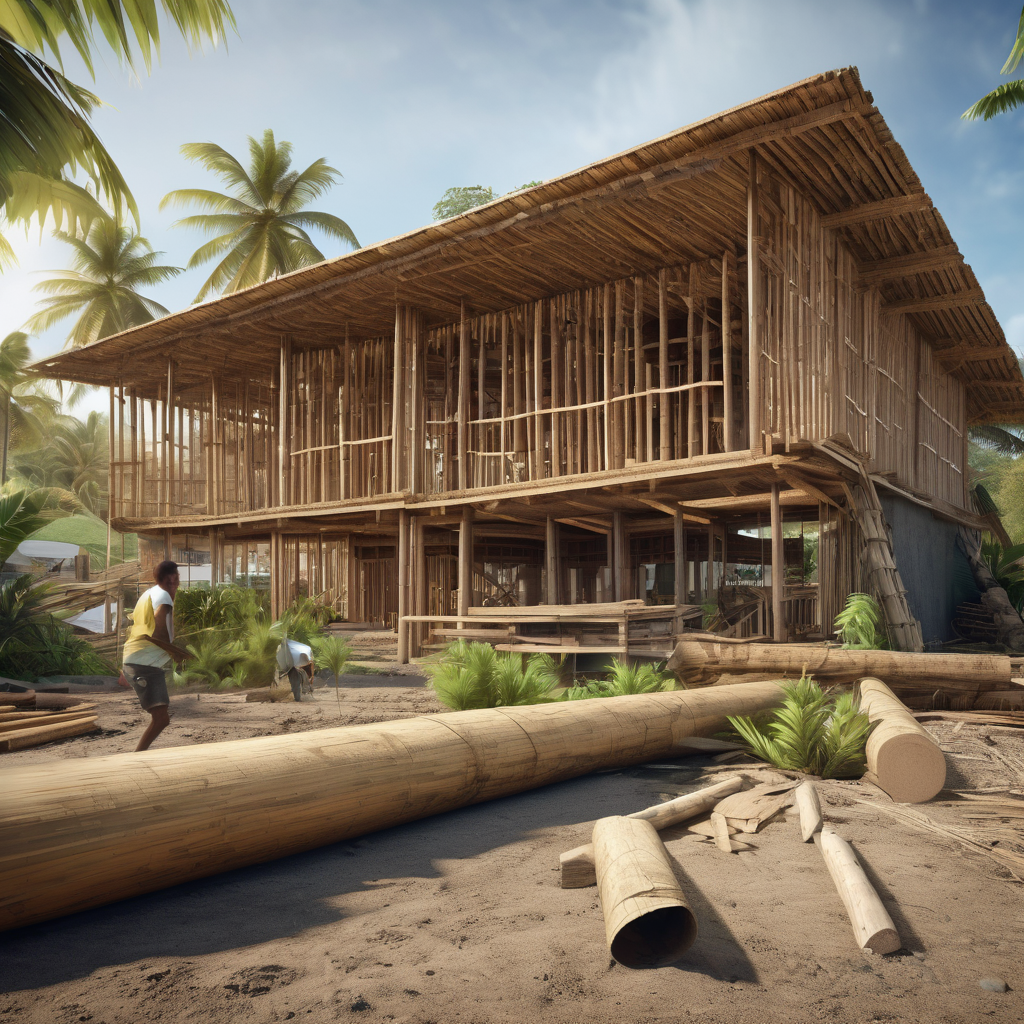Fiji is confronting significant hurdles in its construction practices, as highlighted during the recent Architecture Conference in Nadi, where industry experts gathered to address pressing issues. A key point of discussion was the prevalent practice of importing building materials without adequate knowledge on their effective use. Adish Naidu, President of the Fiji Architects Association, underscored the urgent need to focus on sustainable, locally sourced materials, such as timber and water.
Naidu pointed out that Fiji’s geographic isolation contributes to the high costs of imported materials, which places a considerable financial strain on construction projects. He emphasized that the country’s abundant natural resources—including sand, gravel, and timber—should be prioritized over cheaper imports. “Affordability in low-cost housing should not be limited to cheaper imports,” he proclaimed, advocating for designs that meet the needs of a growing population despite constraints like limited land availability.
Encouraging a return to nature-inspired designs, Naidu likened architects to animals that instinctively use plants for healing, calling for their creativity in harnessing local materials. This theme resonated with Fiji’s Deputy Prime Minister and Tourism Minister, Viliame Gavoka, who articulated that architectural practices extend beyond technical matters. Each choice in materials and design has significant ramifications for community well-being, environmental health, and national progress.
Gavoka urged emerging professionals to integrate sustainability, resilience, and inclusivity into their work. He announced the initiation of the Fiji National Sustainable Tourism Framework for 2024-2034, aimed at bolstering the visitor economy, nurturing vibrant communities, and preserving cultural heritage through sustainable practices.
As Fiji grapples with the reality of natural disasters, including cyclones and rising sea levels, both Naidu and Gavoka reiterated that the development of robust and resilient infrastructure is essential for protecting lives and ensuring long-term prosperity. The conference provided a vital platform for experts and stakeholders to collaborate on sustainable development discussions, fostering a positive outlook for Fiji’s architectural landscape and community resilience.
By committing to local resources and prioritizing sustainability, Fiji is paving the way for a promising future in its construction sector. With an emphasis on innovation and collaboration, the nation is poised to create a resilient, environmentally conscious built environment adaptable to the challenges of a changing climate.
